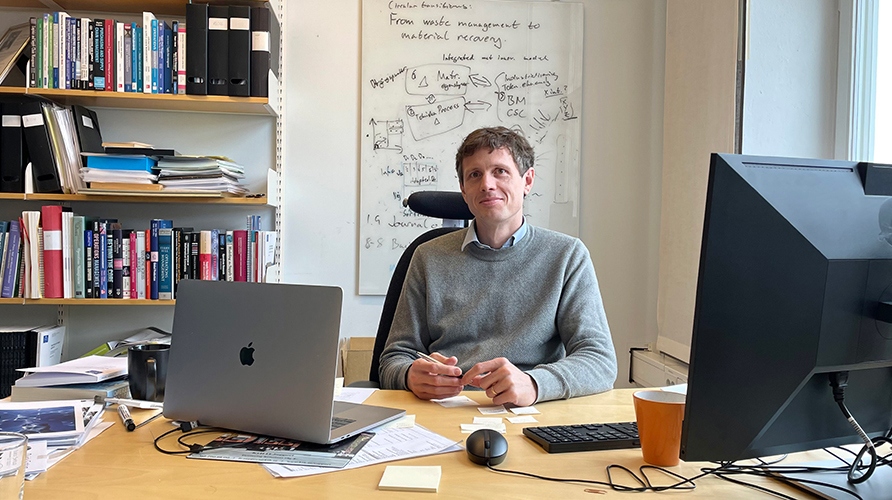INDEK’s oral exams enhance learning

The idea of examining an entire course using oral exams is not new to INDEK. However, a reorganization of the master's courses was needed before it could become a reality. A contented team of teachers is now refining the continuation.
Last spring, four master's courses at INDEK received new content and teaching methods. It's an extensive program, with around 120 students at the master's level. The different course coordinators formed teaching teams, where one of the goals was to integrate the courses and learning better.
”One requirement when redesigning the courses was to have individual examinations. Students shouldn't be able to coast through a year with good project partners without truly understanding and applying the knowledge themselves. We've wanted to address this in our advanced courses,” says Andreas Feldmann , lecturer and master's programme coordinator at INDEK.
Previously, students often examined courses in the form of projects, with several students in each project. It becomes difficult to assess the knowledge of different individuals, and there are also many lengthy reports to read for the course coordinators. Furthermore, it's challenging to set goal-related grading criteria for project work. However, increasing the number of traditional written exams wasn't appealing to the teachers either.
”Written exams are an art form – many become skilled at throwing in keywords and making it difficult to notice that they haven't grasped the content. Students also learn very little after a written exam; they receive a number in return. As a teacher, you don't have the opportunity to provide thorough feedback on all exams.”
The solution became oral exams, also known as "muntor" (a play on the Swedish words "muntlig tentamen," meaning oral exams). Thirty minutes of quality time per student, where the entire teaching team collaborated to meet with students who booked slots made available on Canvas.
”It's very efficient. After half an hour, you can tell the students what grade they'll receive, something we plan to start doing. And you can provide good feedback. It became evident how they had performed; we almost always agreed, the student and I. Furthermore, this type of examination students can learn from; with follow-up questions like ’What do you mean?’ or ’What does that mean?’ they are often forced to think one step further.”
What had previously hindered Andreas and the other course coordinators at INDEK from conducting oral exams was that managing these courses with many students was tough. The time per student is, admittedly, the same as grading written exams, but oral exams are more intense.
”One can't handle more than ten per day. But we've solved it with the teaching team, where we help each other out. It didn't matter that everyone wasn't equally well-versed in the detailed teaching of each other's courses. To some extent, you have to study. Still, we have a good grasp of industrial economics and organization and developed the question template together.”
After their oral exams, the teachers met to ensure they evaluated the different grading levels consistently and set the same expectations for the students.
”Building a teaching team and gaining insight into colleagues' teaching is also enriching. We can more easily complement each other's courses, and it becomes simpler to step into another course if someone falls ill or the like.”
According to Andreas Feldmann, the most challenging aspect of implementing oral exams is coordinating 4-5 busy teachers to have a few concentrated exam days.
While the teachers were content, what did the students think?
”They were super nervous, but we've received very positive feedback. We spent a lot of time informing them beforehand and put effort into not being too strict during the oral exams, aiming for it to be more like a conversation. If a student still experiences a mental block, they can say Pass and pick up the thread later.”
For the next round of courses, the teachers will provide the question pool in advance. The team is also considering posting an example of a recorded oral exam that students can listen to.
There's another significant advantage to oral exams, says Andreas:
”It solves all problems with cheating. For example, ChatGPT might write excellent reports, but discussing your subject matter orally makes it clear what you truly understand.”
Text: Anna Gullers
